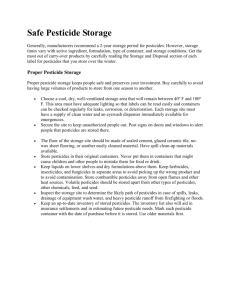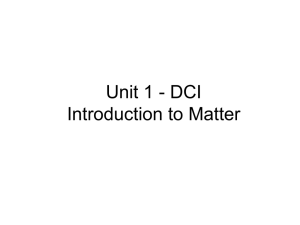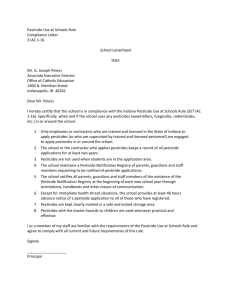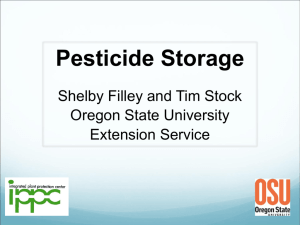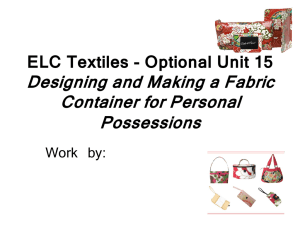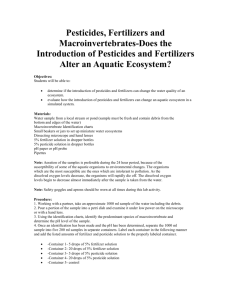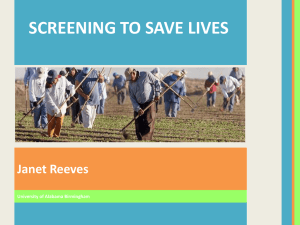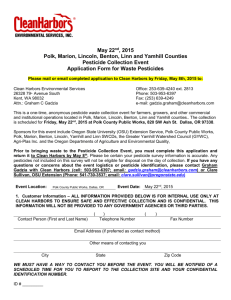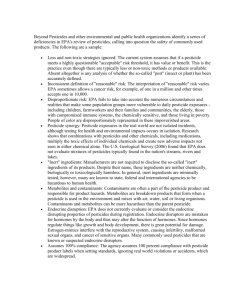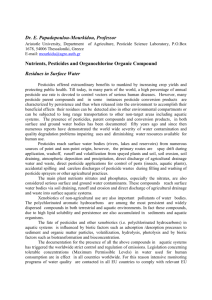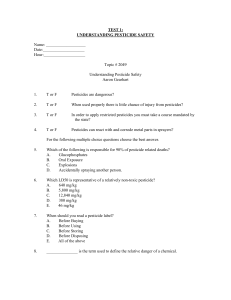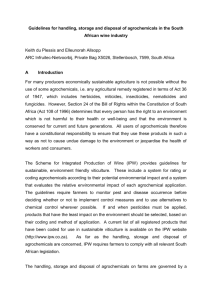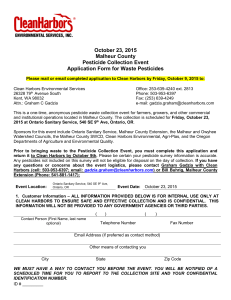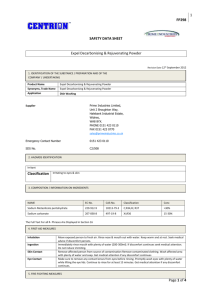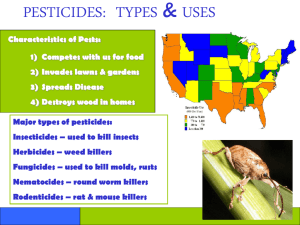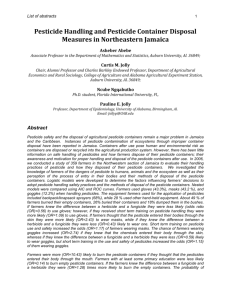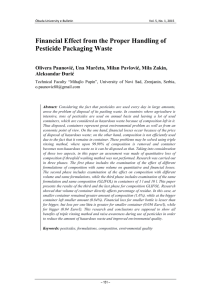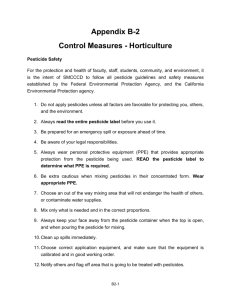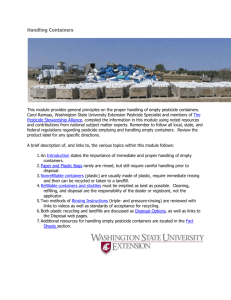Disposal of unwanted, outdated or waste pesticides
advertisement
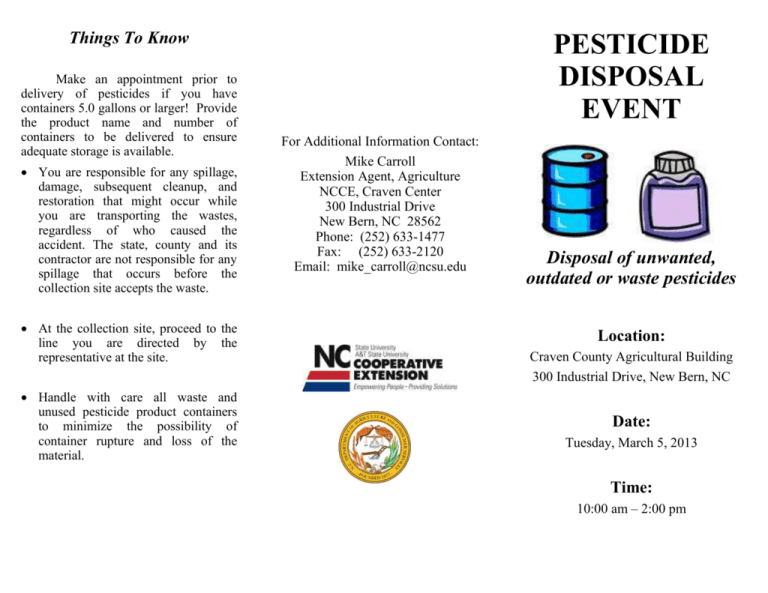
Things To Know Make an appointment prior to delivery of pesticides if you have containers 5.0 gallons or larger! Provide the product name and number of containers to be delivered to ensure adequate storage is available. You are responsible for any spillage, damage, subsequent cleanup, and restoration that might occur while you are transporting the wastes, regardless of who caused the accident. The state, county and its contractor are not responsible for any spillage that occurs before the collection site accepts the waste. At the collection site, proceed to the line you are directed by the representative at the site. Handle with care all waste and unused pesticide product containers to minimize the possibility of container rupture and loss of the material. PESTICIDE DISPOSAL EVENT For Additional Information Contact: Mike Carroll Extension Agent, Agriculture NCCE, Craven Center 300 Industrial Drive New Bern, NC 28562 Phone: (252) 633-1477 Fax: (252) 633-2120 Email: mike_carroll@ncsu.edu Disposal of unwanted, outdated or waste pesticides Location: Craven County Agricultural Building 300 Industrial Drive, New Bern, NC Date: Tuesday, March 5, 2013 Time: 10:00 am – 2:00 pm Pesticide Disposal Transporting Pesticides The North Carolina Department of Agriculture & Consumer Services and NC Cooperative Extension offer an opportunity for safe, free disposal of unwanted or unusable pesticides for citizens of Craven County. Pesticides that are in the original container and clearly labeled can be collected. If the pesticide is not in its original container or is damaged, it must be over-packed in a safe, closable plastic container. Printed labels are acceptable if attached prior to delivery. Always follow these rules: Leave pesticide(s) in the original container(s) with the label intact. 1. Make sure all pesticide containers are securely closed. Containers that cannot be securely closed should be packed within another container that can be securely closed. Handle containers with chemical resistant gloves and other appropriate protective clothing and equipment. Wash hands with soap and water after handling. Handle containers in a manner to prevent spillage. 2. Line the storage area of the transport vehicle with plastic sheeting to contain any potential spillage that might occur and simplify any cleanup and decontamination. 3. If possible, arrange the pesticides by hazard class (flammables, corrosives, oxidizers, poisons) to prevent mixing of incompatible materials should spillage occur. 7. Do not transport pesticide wastes in a manner that will allow fumes to enter the vehicle. 8. Make a list of the pesticides that you are transporting. Include on the list the name(s) of the pesticide(s), number of containers, and hazard class (when known). In addition, include the emergency phone numbers for fire and police assistance. 9. Drive directly to the pesticide collection program site after you load your vehicle. 10. Drive safely! 4. Make sure attached. labels are securely 5. Arrange containers in your vehicle so that they are braced to prevent shifting that may result in container damage and/or leakage. 6. Keep containers dry during transport. Loads in open vehicles such as pickup trucks should be covered in the event of rainfall.
